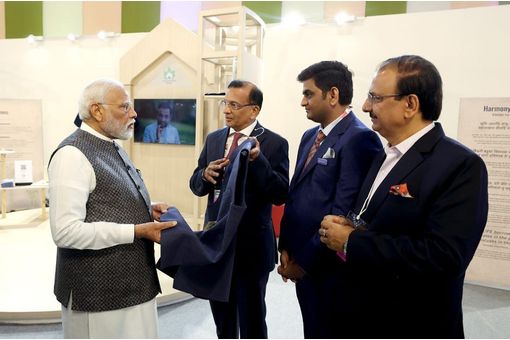Interviews
Philippines garment sector losing out on high wages
27 Sep '12
2 min read
The once thriving garment manufacturing industry of Philippines is losing out on competition to its low-wage providing competitors like Vietnam and Cambodia in the Asean region.
Ms. Maritess Jocson-Agoncillo, Executive Director, Confederation of Garment Exporters of the Philippines (CONGEP), while speaking to fibre2fashion, explained the reasons behind this shift towards the low-wage countries.
She says, “The abolition of the quota system in 2005 resulted in a buyers' market, and buyers naturally have a tendency to shift to countries that offer products with the best quality within the shortest time possible at the lowest cost.”
“As a result, China naturally became the strongest competitor, not only of the Philippines but the rest of Asia as well. However, in recent years, with China becoming more expensive, other Asian countries with lower wages than China have started getting more orders,” she explains.
“Unfortunately, the Philippines has higher wages than other ASEAN garment manufacturing countries like Vietnam and Cambodia,” she adds.
In Philippines, the minimum wages vary from region to region, but the concentration of garment manufacturing units is in regions where current wages are at an average of US$7.80 per day, informs Ms. Maritess.
When quizzed about the steps that have been taken to ease the current situation, she replies, “We believe that improved market access is crucial to the survival and eventual growth of the garment industry. To this end, the Government and the private sector are working together to negotiate and secure trade agreements with our major markets like the US.”
“We are pushing for the passage of SAVE Act in the US Congress. The passage of the Act would be a win-win situation for both the Philippines garments and the US textile industries. The act, once passed, will eliminate duties on Filipino garments, made using US fabrics, entering the US,” she explains.
Emphasizing on the necessity of a modified labour rights protection agreement, Ms. Maritess avers, “Another significant move is the establishment of a labour standards compliance program, akin to the ILO-Better Works Program, in the Philippines. The labour compliance is now very much a part of the value proposition to the buyers.”
“The Government, labour unions and the employers are actively working towards this under our tripartite council which uses a constructive and consensus-building approach to address labour-related issues,” she concludes.
Fibre2fashion News Desk - India
Popular News
Leave your Comments
Editor’s Pick
Jason Kent
British Textile Machinery Association (BTMA)
Dr. Michael Duetsch & Man Woo Lee
UPM Biochemicals and Dongsung Chemical
































-Ltd..jpg?tr=w-120,h-60,c-at_max,cm-pad_resize,bg-ffffff)





.jpg?tr=w-120,h-60,c-at_max,cm-pad_resize,bg-ffffff)
.jpg?tr=w-120,h-60,c-at_max,cm-pad_resize,bg-ffffff)






